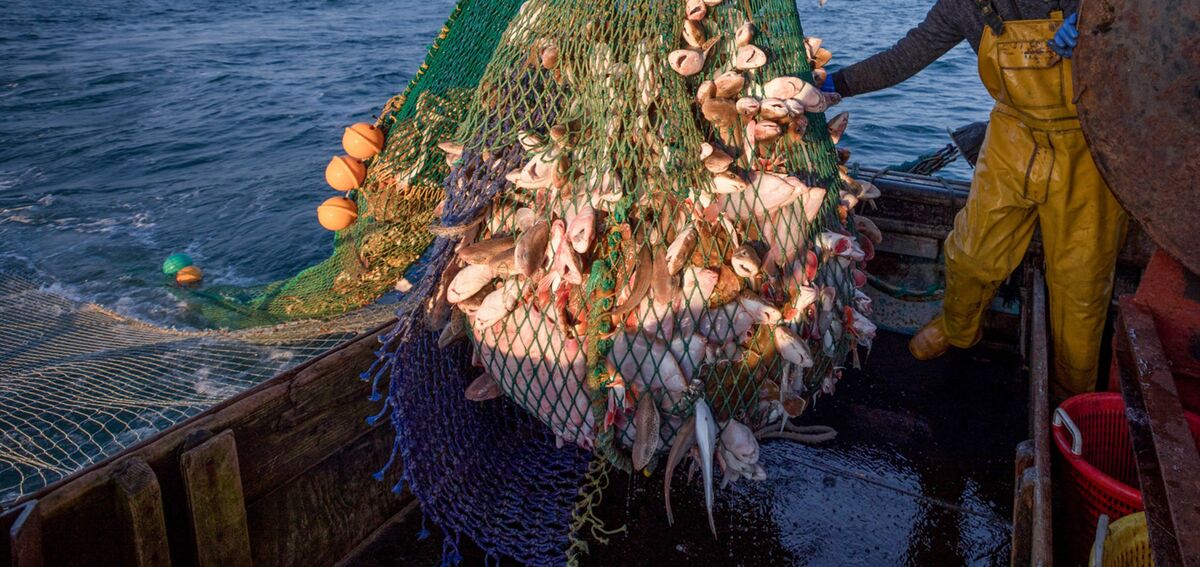
Photographer: Jason Alden / Bloomberg
Photographer: Jason Alden / Bloomberg
Scottish fishermen are willing to sail for an extra 48 hours to Denmark, where their catch could pay twice as much after domestic prices plummeted as a result of Brexit.
A boat loaded with 15 tons of anglerfish arriving on Thursday night is expected to pay its Scottish captain 225,000 SEK ($ 36,700) more than at Petershead, Britain’s largest fishing port, said Jesper Kongsted, a fish auctioneer at Hanstholm, on the Danish North Sea coast.
Buyers in the UK are avoiding more expensive fish varieties because red tape and queues can mean it is not fresh when it reaches European customers. Seafood From Scotland said prices for many seafood species have dropped by 40% to 50% just this week, with some falling as much as 80%.
“Boris Johnson probably forgot to explain what leaving the EU would mean for fishermen’s ability to sell to the European market,” said Kongsted.
Read more: A quick introduction to why fishing was so important in trade negotiations
The impact of the Brexit transition on the Scottish seafood industry has been far-reaching, ranging from computer glitches to unclear paperwork, making efforts to export “virtually impossible,” Donna Fordyce, chief executive of Seafood From Scotland , said in a statement.
With about a third of Scottish vessels moored and others redirecting to Denmark, many fishermen are on land and the processing industry, which employs 10,000, is suffering.
James Withers, CEO of the Scotland Food & Drink industry group, estimates that seafood traders are currently losing 1 million pounds ($ 1.4 million) in exports per day due to customs chaos.
The UK landed nearly 1 billion pounds of fish in 2019, much of it in Scotland.
“No party can fix this problem overnight, but losses to the industry are increasing and the situation is urgent,” said Fordyce. “We have days to fix – not weeks.”
The UK government has pledged a £ 100 million package to help rebuild the country’s fishing fleet and the industry’s outdated infrastructure.
Read more: the Brexit deal could mean less British cod for fish and chips
Back in Denmark, Kongsted estimates that boats unloading in the Nordic country are rushing to solve an immediate problem and that the number of trawlers arriving may decrease as solutions are found in the UK
– With the help of Joe Mayes
